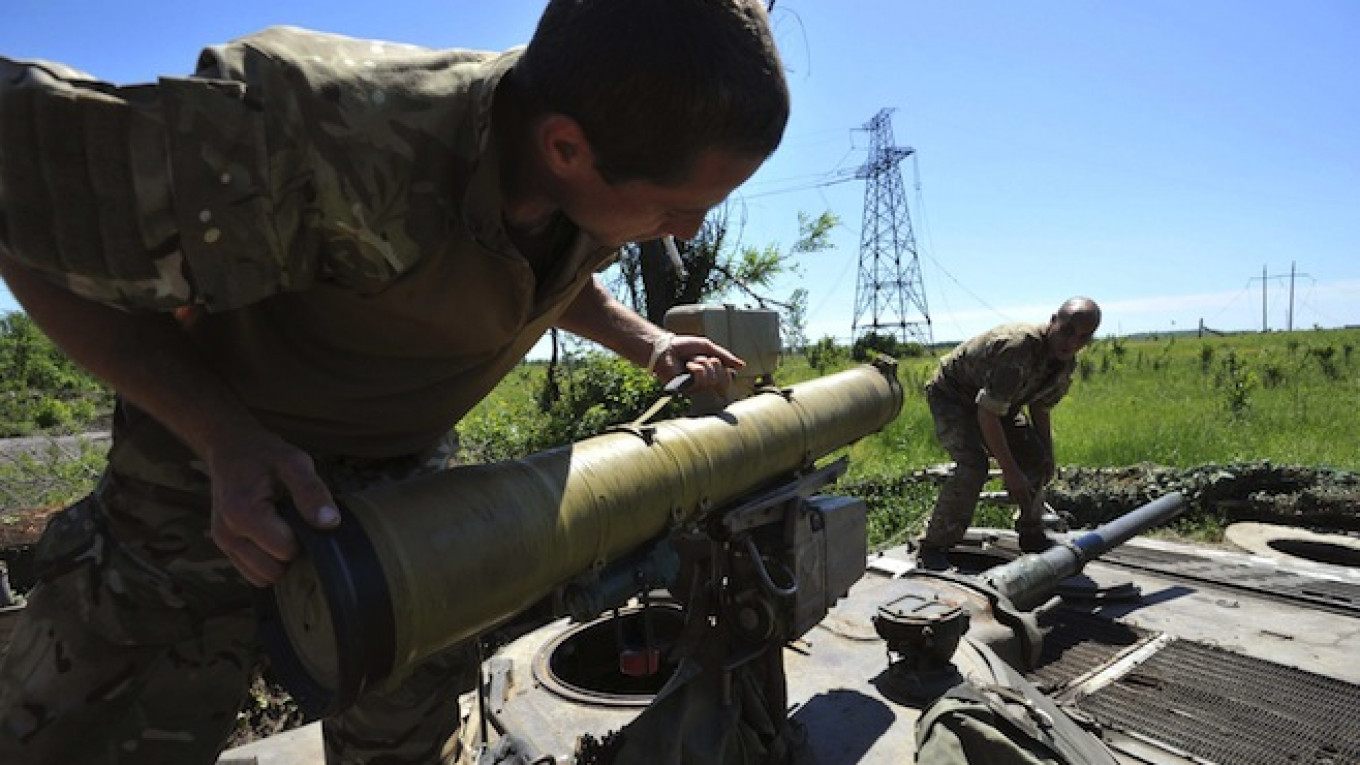The United States already has many of the tanks and other vehicles needed to equip an armored brigade in Europe, but has not decided yet whether to store some of the hardware in eastern Europe, a top U.S. commander said on Wednesday.
U.S. officials said over the weekend that the United States planned to store heavy military equipment in the Baltics and eastern European nations to reassure allies unnerved by Russia's intervention in Ukraine and to deter further aggression.
After Russia annexed Ukraine's Crimea region last year, NATO leaders agreed to step up exercises and rotations of forces through NATO allies in eastern Europe as well as storing equipment and supplies there for use in an emergency.
A Russian defense official said Moscow would retaliate against the U.S. move by beefing up its own forces , and a day later President Vladimir Putin announced that Russia would add more than 40 intercontinental ballistic missiles to its nuclear arsenal this year.
Lieutenant General Ben Hodges, commander of U.S. Army Europe, said the United States planned to keep enough vehicles in Europe to equip an armored brigade combat team. The equipment could be used both for training and in a crisis.
"The total number is about 1,200 vehicles. Of the 1,200, about 250 are tanks, Bradley infantry fighting vehicles and ... 155mm self-propelled howitzers," Hodges told Reuters in a telephone interview.? "All the other vehicles are command-and-control, logistics, engineers, medical: all the things associated with delivering the capability of an armored brigade combat team."
About 60 percent of the equipment was already in Europe and 98 percent of it would have arrived by year-end, he said.
Part of the equipment was needed for training in Germany, Hodges said. Some of the rest of the equipment could be stored in eastern Europe, but it was up to U.S. Defense Secretary Ash Carter to decide, and Hodges said he did not know what the final decision was.
The Polish Defense Ministry said on Sunday that Poland is in talks with the United States about stationing U.S. Army equipment warehouses there.
The Lithuanian government said in a statement on Wednesday it had approved an agreement with the United States which would provide a legal basis for the pre-positioning of military equipment in Lithuania.
Hodges said he wasn't surprised by the Russian response to news of the U.S. pre-positioning of equipment "because they have been saying the most outrageous, provocative things now for a year and a half."
"I'm flattered that the Russians think they need 40 nuclear missiles to counter the effect of one U.S. Army armored brigade combat team," he said. "It's irresponsible for Russia to talk about nuclear weapons."
Hodges said Russia had taken advantage of a relative lull in fighting in eastern Ukraine, where pro-Russian separatists are battling the Ukrainian army, to "bring in a lot more equipment, a lot more ammunition, air defense capabilities, electronic warfare, command and control."
The conditions in Ukraine were similar to those in place before the last two separatist offensives, he said, although he said he did not know if another attack was imminent.
A Message from The Moscow Times:
Dear readers,
We are facing unprecedented challenges. Russia's Prosecutor General's Office has designated The Moscow Times as an "undesirable" organization, criminalizing our work and putting our staff at risk of prosecution. This follows our earlier unjust labeling as a "foreign agent."
These actions are direct attempts to silence independent journalism in Russia. The authorities claim our work "discredits the decisions of the Russian leadership." We see things differently: we strive to provide accurate, unbiased reporting on Russia.
We, the journalists of The Moscow Times, refuse to be silenced. But to continue our work, we need your help.
Your support, no matter how small, makes a world of difference. If you can, please support us monthly starting from just $2. It's quick to set up, and every contribution makes a significant impact.
By supporting The Moscow Times, you're defending open, independent journalism in the face of repression. Thank you for standing with us.
Remind me later.


